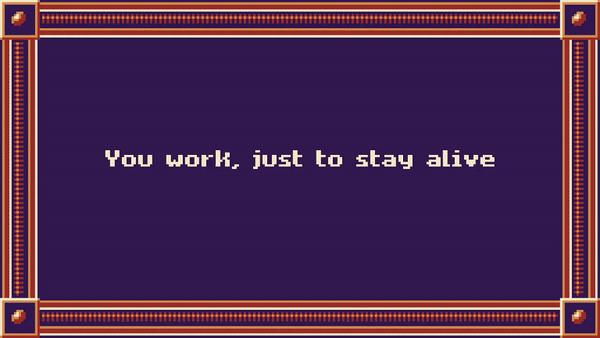(even when you call it a "collective")

Videogames is really on a roll lately when it comes to showing its entire ass to everyone who still dares to look. This morning I woke up and found that for some reason a bunch of smaller videogame publishers have announced that they formed a “collective”, where they pool resources and knowledge to help each other out. This in itself is, well, to be expected to some degree? After all, companies always consolidate into larger bodies in times of economic crises, and considering the wave of buyouts that happened in the larger industry, something like this was bound to happen. What drove me up the wall though was their incredibly cynical attempt in framing this at somehow being a good and progressive thing to do. One of its founding members, who spent quite some time on twitter bothering people critical of this project (while proclaiming how much they are “anti-harassment”) even called it a “socialist as hell project”.
Now, I haven’t read a bunch of socialist writing, but Rosa Luxembourg did had this to say about the nature of Cartels:
"Generally speaking, combines treated as a manifestation of the capitalist mode of production, can only be considered a definite phase of capitalist development. Cartels are fundamentally nothing else than a means resorted to by the capitalist mode of production for the purpose of holding back the fatal fall of the rate of profit in certain branches of production."
(From: Rosa Luxembourg, Reform or Revolution, which you can read in its entirety here.
Companies pooling their interests and resources, doesn’t magically turn them into socialist projects, even if you call it a “collective”.
So what would make it socialist? Now this is probably all up for debate to some degree, but one important part of any socialist project is that it kind of has to dissolve the divide between individual ownership of capital and the collective mode of production. Whatever is being created has to be owned by everyone who was involved in said creation and the profits have to be shared among them.
This gets really tricky with a publisher, because all a publisher does is take partial ownership over someone else's work, to use its expertise and access to sell that work on a marketplace. Even if everyone involved in this has equal ownership, this still leaves the question how the relationship with developers is handled. And considering that one of the publishers involved in this is Raw Fury, who had a bunch of very sketchy stuff in their example contract that was making rounds last year, about how they get partial ownership over the signee's IP when it comes to creating derivative works, as well as requiring signees to make statements about how they spend their advance money (I haven’t looked at it in a bit, so apologies if some details are a bit off), the question of ownership is really important here. So how socialist can your project be, when you still maintain a capitalist “owner/producer” relationship with those that you take under contract?
None of these things are answered on their (currently fairly sparse) website. All you see is an announcement for a promotion event (showing off some of the games they have under contract, while claiming that those are theirs) and a very vague gesture towards a fund for marginalized groups. Both of these things aren’t bad things themselves, but neither do you see any reference as to whose games they’re showing (and if those also have ownership in their “collective”), nor do we know how much of the money they earn gets put into said fund.
This reeks to me like a bunch of middle managers pooling their resources, to make sure that they are still able to get theirs, while the rest of the market gets pummeled by an ongoing pandemic and general economic anxiety.
How is this supposed to help developers who are already struggling to get coverage from larger press outlets, when instead the games press has another big event they can cling to for easy access? How is this supposed to help developers get access to platforms and additional (and uncomplicated) funding? What happens, when you want to sign with one of these publishers, but find their contract abominable? How sure can you be that the contracts of the other members of this group are any better, or if they would even hear you out? How is this supposed to strengthen the position of developers when it comes to negotiating with publishers, when a good portion of them is part of the same interest group? In the end, if you want to get your game out, you’re still required to pitch your work to publishers, hope that they deem it “marketable” enough and then you still have to sign away parts of your rights, just keep to existing. Doesn’t matter if the entity they sign their rights to calls itself a “collective”, it’s still the same mode of operation, and so it’s still a capitalist endeavour, no matter what its founders are claiming.
With that I’m going to leave you with something I wrote earlier this year and which I feel really applies to this situation:
"There’s this notion that small game developers are all equal and friends and that we should show solidarity to each other, but when a handful of people in this space get to exist and through their existence make things substantially worse for others, than they’re part of the system that needs to be destroyed, and not part of the solution."